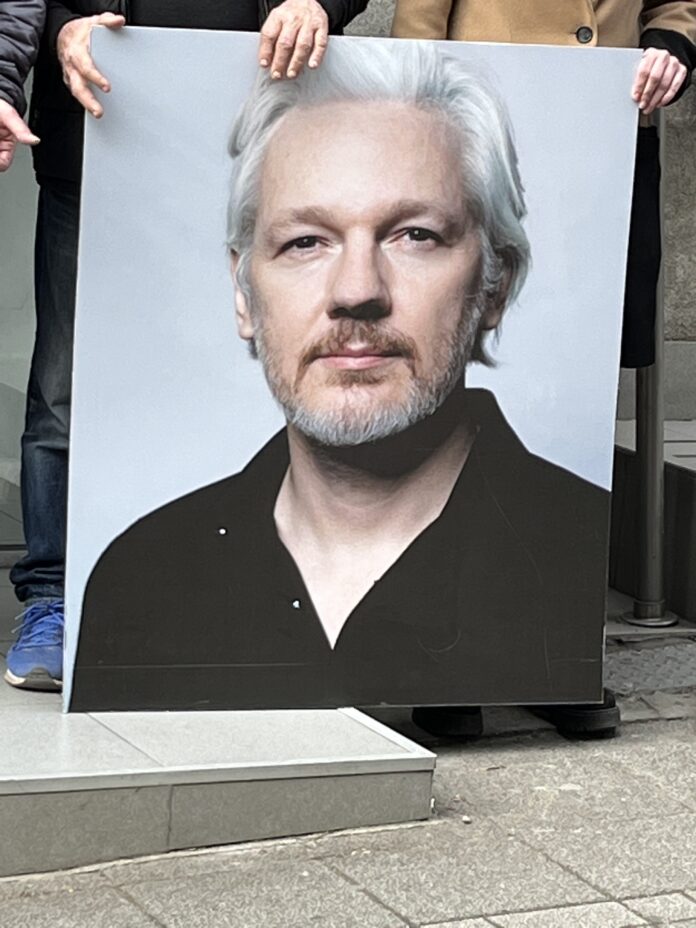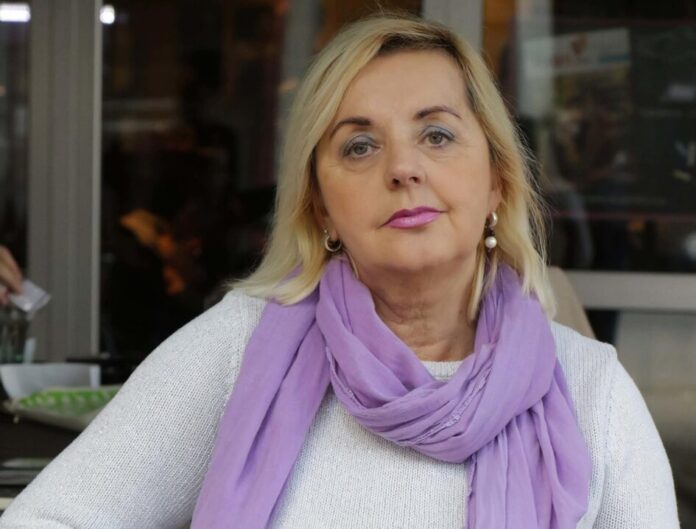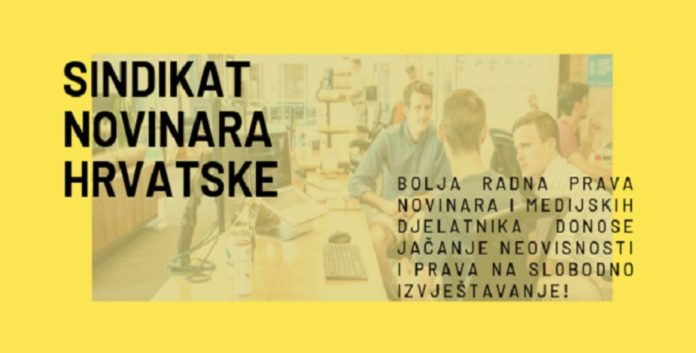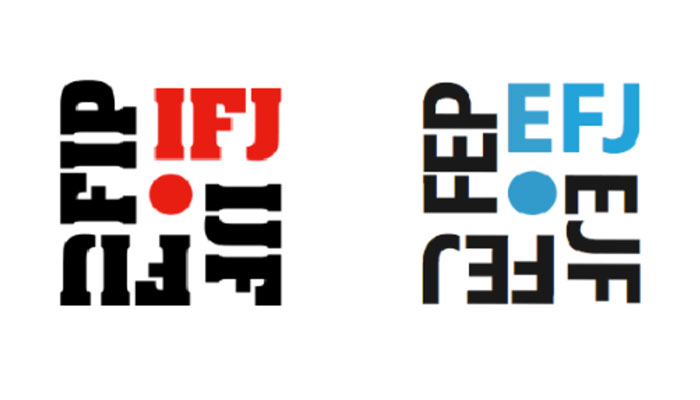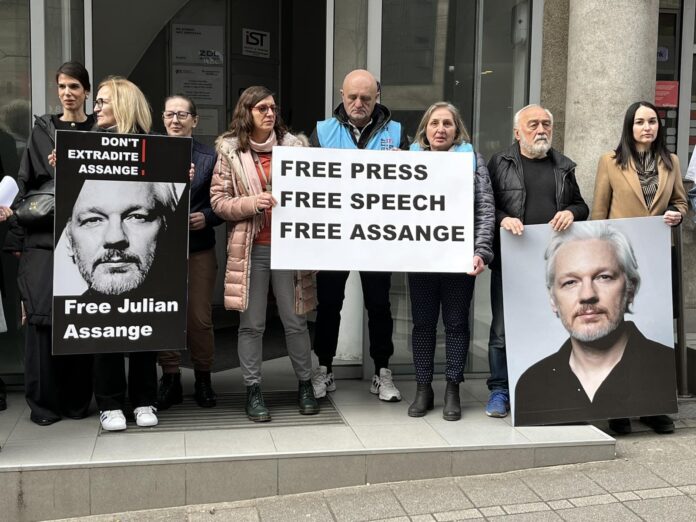Borka Rudić, general secretary of the BH Journalists Association (BHJA), speaks about the pressure on all those who think freely, who, since the passing of the “law on foreign agents”, which criminalizes defamation, are threatened with fines of up to 3,000 euros and on the basis of which 45 reports have been filed in a few months.
Since defamation became a criminal offense in Republika Srpska four and a half months ago, 44 reports have been filed for that offense and one for “exposing personal and family circumstances”. Among the defendants are 32 citizens and five journalists, so we can already talk about legal pressure on all free-thinking people, says Borka Rudić, general secretary of the BHJA, in an interview with Cenzolovka. The journalist and professor of philosophy and sociology says that in practice this means – “a priori censorship” in order to avoid criminal prosecution for “defamation”.
She says that the law “on the special register and publicity of the work of non-profit organizations”, which is colloquially called the “law on foreign agents”, is part of the “package” of political measures initiated by the President of Republika Srpska Milorad Dodik.
In 2023, the BHJA registered 87 cases of violations of media freedom and safety of journalists. Only 10 were solved.
Cenzolovka: From August 2023, after the decision of the Assembly of the Republic of Srpska, defamation is a criminal offense, for which a fine of around 3,000 euros can be obtained. Journalists and non-governmental organizations say the aim of this law is to limit open and critical debate on topics of public interest. You pointed out that five defamation cases have been filed against journalists since then. What kind of cases are we talking about?
Rudić: We still don’t have information about who is behind the large number of criminal charges in the Republika Srpska or who has been sued, because the district prosecutor’s offices have not shared that information with us. For now, we know the number of applications – 45, of which 44 are for defamation and one application for “presenting personal and family circumstances”. Most of the defendants are citizens – 32, followed by five journalists, two politicians and five unknown persons.
We only received summary data from the District Prosecutor’s Office in Banja Luka, so I don’t know how many journalists, civil society activists or people from other professions there are.
If you’re going to write about the enrichment of a son whose mother is in public office, or research public works involving the president’s godfather, you need to think ahead about how you’re going to do it without facing criminal charges.
None of these criminal charges have yet been confirmed or indicted. In general, this is a really large number of criminal charges in four and a half months. We can already talk about legal pressure on all free-thinking people – from citizens, who are currently the most affected by criminal proceedings because of their expressed opinions, to journalists and civil society activists. The outlines of the legal framework and institutional mechanisms for silencing any criticism, limiting public debate on topics of concern to citizens and violating the right to freedom of speech are clearly visible.
Now anyone can file a criminal complaint, for political, personal and even the most down-to-earth malicious reasons. The Prosecutor’s Office will have to receive that application, process it and spend human and material resources for something that is unthinkable in a democratic world – and that is conducting criminal proceedings because of someone’s opinion, criticism, media text, comment or invasion of privacy for the sake of public interest.
Cezolovka: What consequences do defamation lawsuits have on journalism? But also on citizens’ access to information of public importance?
Rudić: Although the application of the law is still only at the level of criminal charges, the law shows negative consequences and the destruction of the profession, which is immanent in criticism of public officials, questioning the way they perform public functions and investigating possible abuse of public powers for personal interests.
For example, if you intend to write about the son whose mother is in public office getting rich, or getting private companies owned by the director of a public hospital, or researching public works in which the president’s godfather is involved, you must think in advance how you will write about these topics, and don’t face criminal charges. It is a priori censorship or self-censorship in order to avoid criminal prosecution! It’s really not easy to work under such circumstances.
Here, I do not want to underestimate the common sense and professional competence of the holders of judicial positions, nor do I doubt that in the spirit of the law, the Constitution and the practice of the European Court of Human Rights, they will evaluate and then reject or accept criminal defamation complaints. However, it will not be easy for them, given the broad provisions of the law and the motives behind its adoption.
Those motives are, unequivocally, the decades-long frustration with the media of the current president of the RS and his final attempt to limit, if not completely stop, the work of a number of free media and journalists in the Republic of Srpska, but also in the whole of Bosnia and Herzegovina.
In Sarajevo Canton, there is a proposal to punish “fake news”, which would allegedly include large fines for citizens and legal entities, including the media
Cenzolovka: Numerous media outlets in the RS are registered as non-governmental organizations. What will be the consequences of the adoption of this law for them?
Rudić: This law is also part of the “package” of political measures initiated by the President of Republika Srpska through the misuse of public institutions of legislative and executive power. There are no legal gaps to speak of the need to pass a special law on the control of the work of NGOs or the creation of their register.
The Republika Srpska, like other parts of the country, has clear legal regulations in the area of NGO registration, tax payment, doing business through banks, submitting annual financial reports, respecting the rights of employees, reporting personal income of citizens and paying taxes, etc.
The aforementioned laws allow everyone from different sectors and public institutions to check what NGOs are doing, even on a daily basis. So, it is clear that this law is being passed for the purpose of the targeted suppression of freedoms within the civil sector, and to stop the work of human rights NGOs and the media.
Again, common sense was defeated by the unreasonable power of the presidential position and Milorad Dodik’s obsession with a number of media and NGOs in the RS, whose work the president would ban as soon as tomorrow.
DIPLOMATIC TRADE IN BIH WILL SWALLOW MEDIA FREEDOMS AND HUMAN RIGHTS
Cenzolovka: Do the European Union and other international organizations understand the consequences of such a law?
Rudić: I am not enthusiastic about their principles and efficiency. On the contrary! They are (as) publicly opposed to rigid interventions in the legal framework for media and civil society because media freedom is one of the 14 priorities for EU integration.
On the other hand, “diplomatic trade” has been established here with the ruling structures in both BH entities and at the level of state institutions. That trade, I’m afraid, will swallow media freedoms and human rights, and that for “little money”.
Here is an illustrative example: last year, a new Law on Free Access to Information was adopted at the state level. Previously, the draft law was negatively evaluated by the EU and the BH Ombudsman Institution, since it contained solutions that reduce the rights defined in the old law. The civil sector sent as many as 200 comments and amendments, but the Ministry of Justice of Bosnia and Herzegovina did not accept any of them!
Nevertheless, the law was adopted without any changes to the draft as part of the “package of European laws” that BiH must accept on the way to EU integration. And with the consent of the EU in Bosnia and Herzegovina. I am afraid that this will be the case with all the laws that are rapidly being passed in different parts of the country with the political slogan “the European path of BiH has no alternative”! And what will happen with media freedom and human rights…
Cenzolovka: There is a proposal in Sarajevo Canton to punish “fake news”, which would allegedly include large fines for citizens and legal entities, including the media. There are fears that this regulation, if adopted, would cause a chain reaction. What is problematic about this regulation?
Rudić: The fundamental problem is that this law declares the Internet a “public place” as if it were a public space – that is, a physical, clearly limited public space within which violations take place and are sanctioned. Also, it is very difficult, even completely impossible at the level of one canton to solve the problem with fake news, hate speech or serious security threats in the practically unlimited online sphere, which is also desired by this law.
The problem is that the police are given great powers and measures to limit freedom of expression, without providing for the assessment of public interest, as well as the implementation of reasonable measures and balance in any type of restriction of the right to freedom of expression and opinion.
We can talk about legal pressure on all free-thinking people – from citizens, who are currently the most affected by criminal proceedings because of their expressed opinions, to journalists and civil society activists.
And finally, it is also problematic that the state of BiH has criminal legislation that treats many of the issues listed in the draft of this misdemeanor law.
Of course, the possibility of “spillover” of the same or similar legal solutions to other cantons is no less dangerous.
Some have already done it before, such as the Una-Sana Canton, and there were similar initiatives in the Parliament of the Federation of Bosnia and Herzegovina. I was a member of the working group that discussed the draft law in several sessions, we disagreed on many issues. Now the proposer of the law is on the move – the Sarajevo Canton Government, and later the Assembly.
I sincerely hope that the law will not be submitted to the parliamentary procedures before all articles that include the media and social networks, as well as misdemeanor measures and procedures against hate speech and fake news are omitted from it.
ONLY ONE IN FOUR ATTACKERS OF JOURNALISTS WERE PUNISHED
Cenzolovka: Safejournalists recorded an increased number of attacks on journalists in Bosnia and Herzegovina. In particular, there were attacks in Banja Luka due to the LGBT parade in Mostar, when the owner of Hercegovina.info Marija Ćosić had all her car tires punctured twice, as well as the attack in Brčko on the owner of the Times.ba portal, Mirza Dervišević. How do these attacks affect the work of journalists?
Rudić: In the helpline for journalists, we registered 87 different cases of violations of media freedom and safety of journalists during 2023, which is 10.12 percent more than in 2022. The largest number (21) refers to political pressure, verbal threats (17), six are physical attacks, seven death threats, eight hate speech, etc.
The problem is the high level of impunity and the slowness in the investigation of attacks, including the cases you mentioned. Only 10 cases reported in 2023 were resolved in that year before the courts or other competent institutions. In general, among journalists and the media, there is a great distrust in the work of the judiciary, since the success rate in punishing those who attack journalists is only 25.4 percent.
This is unacceptable, and we in BH journalists are talking about the inaccessibility of justice for journalists. This has a discouraging effect on all journalists and the media, especially younger colleagues. If we add to this a large number of criminal charges in Republika Srpska, then we are truly witnessing a deliberate and brutal suppression of media freedom and freedom of speech in BiH. And that in front of the eyes of the European institutions in Bosnia and Herzegovina and after the country received candidate status.
Source: Cenzolovka, BH novinari



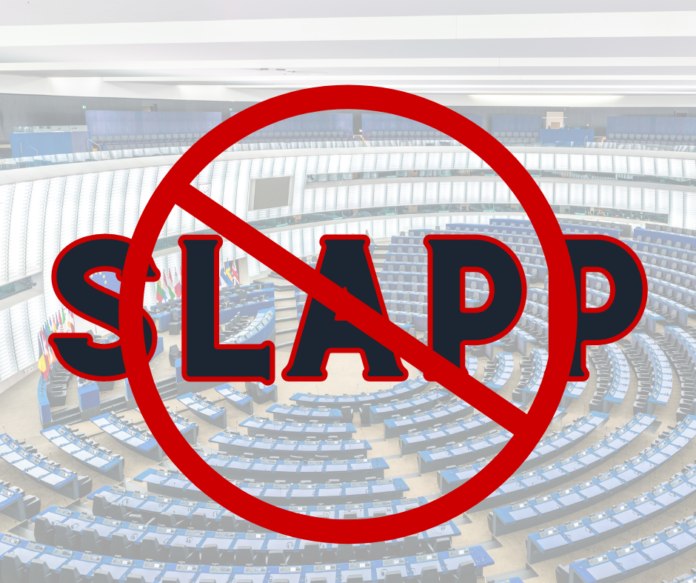
![LM[1]](https://safejournalists.net/wp-content/uploads/2024/02/LM1-696x696.png)

